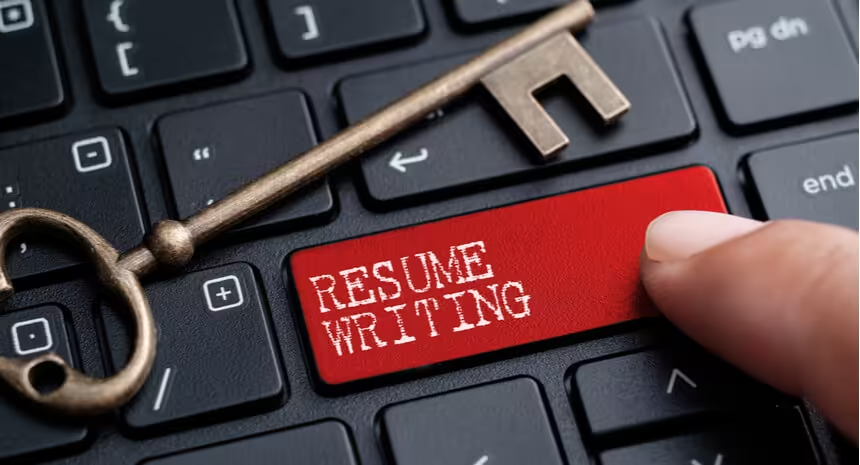Table of contents
As an automotive engineer, you’re skilled in developing, designing and testing vehicles and their systems. With a sharp eye for detail and a commitment to innovation, you guarantee vehicles meet high performance and safety standards while also considering environmental impacts and manufacturability.
However, you’re at a loss for words when it comes to capturing this expertise on your automotive engineering resume.
Don’t worry. You’re not alone.
With our guidance, you can highlight your engineering milestones and achievements, propelling you closer to your next career opportunity.
This guide will walk you through:
- Expertly crafted automotive engineer resume samples.
- A step-by-step guide to building your resume.
- Tips on selecting the most fitting format and design.
- Optional sections that can elevate your resume’s impact.
- Reasons every automotive engineer should consider including a cover letter.
Need an automotive engineer resume quickly? Do so with our Resume Maker. Select a design that reflects your engineering prowess and refine your resume with our step-by-step guidance and customizable text recommendations.
Automotive engineer resume examples
Why this is a top automotive engineer resume example
-
Opens with a compelling career objective
The candidate uses a resume objective to emphasize their dedication to vehicle design and testing, making it immediately clear they have what it takes to join the ranks of leading auto companies.
-
Showcases a diverse skill set
Automotive engineers require a blend of technical abilities and interpersonal skills. This resume wisely exhibits an array of competencies, from CAD modeling to collaborative project management.
-
Utilizes a functional resume format
The resume adopts a functional format, centering on skills rather than the work experience at the center of chronological resumes. This setup is ideal when pivoting to a different sector or for those at the dawn of their career.
Why this is an excellent automotive engineer resume example
-
Illustrates their career trajectory
This automotive engineer outlines their extensive experience in a comprehensive work history section, sticking to a chronological resume format and using bullet points for readability
-
Substantiates skills with specific metrics
The candidate drives home their engineering accomplishments by spotlighting major projects and specifying the exact magnitude of their contributions, which grants potential employers a measurable perspective on their expertise using relevant data.
-
Chooses a crisp, user-friendly design
The candidate opts for a sleek yet professional template, ensuring potential employers can pinpoint primary achievements with ease.
Looking for a different job title? Check out our library of resume examples or see similar roles below:
Browse other popular samples
Related Guides & Tips
Choose a format for your automotive engineer resume
Consider your resume as the prototype of your career: It should be perfectly designed to show off your experiences and provide a clear overview of your abilities.
How can you concisely and professionally present this information in just one or two pages? That’s where your resume format comes in. Each format is organized differently to make it suitable for different career stages. Here are the three types of formats — and the purposes they serve:
- Chronological resume format: Perfect for automotive engineers with over five years of experience, this format emphasizes your employment trajectory. You can list your jobs chronologically in reverse-chronological order to better detail your professional path, from the most recent roles to earlier projects, highlighting major automotive firms or projects.
- Functional resume format: Designed for those new to the automotive field or those transitioning from related sectors like mechanical engineering. This layout lets you emphasize your various engineering strengths across skill-centric sections.
- Combination resume format: Ideal for those with a balanced mix of experience and skills. This format showcases your competencies while linking them with your employment history. It’s particularly fitting if you’re targeting roles higher up the ladder.
After picking the most appropriate format, your next task is to select a design.
Which resume template matches your career?
Given the detailed and solution-driven nature of engineering, your resume template should project clarity and professionalism.
While a unique flair can distinguish you, clarity should remain paramount. Avoid designs that might overshadow your capabilities.
For most engineering roles, a simple resume template is often the way to go.
However, if you’re drawn to something more modern, or if you work in a cutting-edge segment of the automotive industry, explore our creative resume designs. Remember, there’s no universal solution, so let your judgment be your compass.
For a template that’s effortless to download, you can always use our Word resume templates or Google Doc templates.
Now, gear up to craft a resume that drives home your expertise.
How to write an automotive engineer resume in 5 easy steps
If your resume is the prototype of your career, use it as a platform to showcase everything from significant automotive projects to impressive collaborations in which you’ve honed your skills.
No detail is too small when charting your career path. So, where to begin? Let’s dive in.
Step 1
Dissect the job posting
Kick off your resume-building endeavor by meticulously analyzing the job advertisement. These listings are treasure troves of information.
From them, you can glean the essential skills and qualifications employers seek — these might span from hands-on experience in chassis design and vehicle dynamics to proficiency in CAD tools or simulation software. By understanding the requirements of manufacturers, R&D labs or automotive startups, you can sculpt your resume to mirror their top priorities.
Such attention to detail becomes crucial in the modern digital recruitment landscape. It’s commonplace for companies to use Applicant Tracking Systems (ATS) to filter prospective candidates based on certain criteria. Often, these criteria hinge on specific keywords tied to engineering methodologies, certifications and software tools.
When piecing together an ATS-optimized resume, ensure your content resonates with the job listing. For example, if a job ad emphasizes capabilities like “aerodynamic design,” “hybrid powertrain development” and “crashworthiness analysis,” you should incorporate those exact terms in your document.
Weave these keywords consistently across your resume, from your professional summary and core competencies to your project highlights. Continuously tailor your resume to align with specific job roles, tweaking the phrasing to ensure you pass the automated filters.
While it might sound daunting initially, with a bit of practice, you’ll master the technique. Now, let’s get down to drafting.
Step 2
Craft an eye-catching resume profile
You need to start off your resume with a great opener. Anything to get your audience hooked and reading more.
Open with a dynamic resume profile. Typically, there are two styles to choose from — professional summaries and career objectives. Both are highly effective for automotive engineers.
A professional summary succinctly represents your engineering exploits in just a few sentences. It’s perfect for seasoned engineers who have spearheaded cutting-edge automotive projects, championed design innovations or significantly enhanced vehicle performance metrics. This section should champion your unmatched contributions to the field.
Conversely, a resume objective paints a picture of your career aspirations and the presence you aim to establish in the automotive domain. It’s the prime choice for fresh graduates or those branching out from related sectors, underscoring their translatable expertise and the distinct edge they’ll bring to automotive giants or startups.
Here’s a glance at how these sections could appear on a resume:
Automotive engineer professional summary example:
Distinguished automotive engineer with over seven years pioneering advanced vehicle designs, optimizing powertrains, and mastering CAD and simulation tools. Celebrated for trailblazing sustainable transportation solutions and leading interdisciplinary teams. Instrumental in optimizing 20+ vehicle designs, resulting in a 20% fuel efficiency and performance enhancement.
Automotive engineer resume objective example:
Master’s in Automotive Engineering from MIT, eager to leverage cutting-edge design methodologies and propulsion technologies to revolutionize the automotive industry. Driven to produce vehicles that are efficient and at the forefront of sustainable transportation solutio
Step 3
Showcase your engineering skills
From bright-eyed graduates to seasoned automotive veterans, your resume should shine with skills optimized for the automotive engineer role you’re targeting.
Success in automotive engineering requires a mix of skills. Hard skills are technical abilities like your proficiency in CAD software, vehicle dynamics and propulsion systems. Meanwhile, soft skills underscore your knack for collaborating with design teams, communicating with clients and meeting project deadlines.
It’s not a matter of hard skills vs soft skills — consider them complementary strengths.
Here’s a list of skills automotive engineers often include in their resumes:
Key skills for an automotive engineer resume:
- Vehicle dynamics
- Powertrain design
- CAD and simulation tools (e.g., CATIA, SolidWorks)
- Materials engineering
- Aerodynamics and thermal management
- Electrification and hybrid systems
- Project management
- Team collaboration
- Client relations
- Effective communication
- Analytical thinking
- Problem-solving and innovation
A sample of a refined automotive engineer skills section might look like this:
- Expertise in vehicle dynamics and performance optimization.
- Proven experience in powertrain design and electrification projects.
- Proficiency in CAD tools such as CATIA and SolidWorks for precision engineering.
- Strong grasp of advanced materials and their application in automotive design.
- Reputation for fostering collaboration across interdisciplinary teams.
- Exceptional problem-solving skills, driving innovation in every project.
Always emphasize your computer skills. Automotive engineers rely heavily on various design and simulation tools. Knowing how to use these programs will increase your value in the job market.
Step 4
Showcase your engineering experience
Elevate your resume by detailing work experience on your resume.
Chronologically outline your positions, beginning with the most recent. Utilize bullet points to highlight significant projects, innovative solutions developed or any advanced vehicle systems you’ve been instrumental in designing or optimizing.
In this section, you can highlight your mastery in automotive engineering, from developing cutting-edge propulsion systems to driving cross-functional team collaborations and delivering pioneering design solutions.
For a touch of finesse, infuse your work experience descriptions with powerful action verbs like “engineered,” “designed” and “optimized.” These will strengthen the impact of your achievements.
Sample of an automotive engineer experience entry:
Lead Automotive Engineer, Apex Automotives
Detroit, MI
June 2019 – Present
- Steered the design and launch of three high-performance vehicle models, achieving critical acclaim.
- Introduced an aerodynamics strategy that enhanced fuel efficiency by 12% across the lineup.
- Led a cross-functional team to develop a hybrid propulsion system, resulting in a 30% reduction in emissions.
- Collaborated with software engineers to integrate advanced driver-assist features, elevating safety ratings.
- Conduct monthly workshops to upskill junior engineers, fostering a culture of continuous learning.
In portraying your engineering roles, it’s essential to highlight quantifiable results. Emphasizing achievements such as “enhanced vehicle efficiency by 15%” or “achieved top safety ratings for four consecutive years” offers tangible proof of your expertise and will bolster your case to employers.
Step 5
Emphasize your educational background
You didn’t go to school for nothin’. In the field of automotive engineering, a robust educational foundation and pertinent certifications are vital. These distinctions confirm your competence and give you a competitive edge.
Start by laying out your education on your resume. If you have a master’s degree in Automotive Engineering, Mechanical Engineering or related disciplines, make sure to list your degrees. Your bachelor’s degree comes second.
Further highlight any engineering certifications or specializations you’ve acquired, such as Professional Engineer (PE) or Certified Automotive Engineer (CAE). Such credentials are a testament to your specialized skills and dedication to the profession.
Example for highlighting your education and certifications:
EDUCATION
Bachelor of Science in Automotive Engineering
Top-tier Institute of Technology and Engineering
CERTIFICATIONS
Professional Engineer (PE)
National Society of Professional Engineers (NSPE)
Certified Automotive Engineer (CAE)
International Automotive Engineers Association (IAEA)
Optional sections for your automotive engineering resum
Honors and awards
Highlight any honors or awards you’ve attained during your engineering career. Such recognition underscores your commitment to automotive innovation, efficiency and outstanding engineering abilities.
How to list awards on your automotive engineering resume:
Automotive Engineer of the Year – September 2024
- Awarded by the International Automotive Engineers Association for cutting-edge vehicular designs and innovative engineering solutions.
Innovative Engineering Award – May 2020
- Recognized by AutoTech Magazine for a breakthrough approach in reducing vehicle emissions and improving fuel efficiency.
Professional associations
Highlighting your affiliation with automotive engineering associations demonstrates your commitment to lifelong learning and staying updated with the latest in engineering technologies.
How to list professional associations on your automotive engineering resume:
- Member of the Society of Automotive Engineers (SAE).
- Active participant in workshops conducted by the International Automotive Engineers Association (IAEA).
Coursework
Detail any additional coursework you’ve completed that’s relevant to automotive engineering. This can illustrate a dedication to refining your expertise.
How to list coursework on your automotive engineering resume:
- Advanced Vehicle Dynamics – Tech University
- Hybrid Electric Propulsion Systems – Elite Engineering Institute
Hobbies and interests
Your personal interests can showcase different facets of your persona that align with the engineering profession. Make sure they either align with engineering pursuits or highlight complementary transferable skills.
How to list interests and pursuits on your automotive engineering resume:
- Build and modify radio-controlled cars, testing various aerodynamic setups.
- Participate in automotive webinars and workshops to stay updated with industry innovations.
- Volunteer at local schools, introducing students to basic engineering concepts through hands-on projects.
resumes made with Resume Now!
Include a cover letter
Though a cover letter may not always be mandatory for automotive engineers, it can be a powerful way to differentiate yourself from other applicants with comparable qualifications.
A cover letter presents an avenue to share your distinctive experiences, from technical skills to social strengths that might be understated in your resume.
Elaborate on what initially kindled your interest in automotive engineering or articulate your future career aspirations. Accentuate specific engineering projects where your involvement was crucial or discuss intricate challenges you’ve surmounted to attain excellence in your field.
For guidance or a spark of inspiration, explore our manual on how to write a cover letter. Additionally, going through our collection of cover letter examples can offer valuable perspectives.
To leave an indelible mark on prospective employers, leverage a cover letter template and customize it with our Cover Letter Generator. Aligning its design with your resume fosters a unified and refined application.
Remember, your cover letter should enrich the narrative of your resume, not merely parrot it. Seize this chance to show your authentic enthusiasm for engineering to up your chances of signing on for your dream role.
Automotive engineer resume — key takeaways
-
Customize your resume for every role
Tailor your resume for each job opportunity, emphasizing engineering skills and specifics highlighted in the job description.
-
Showcase your multifaceted engineering skills
Demonstrate your knowledge of automotive engineering principles, mastery over CAD tools and your project management and problem-solving powers. Being adept at juggling multiple projects and innovating solutions is crucial.
-
Quantify your engineering accomplishments
Employ exact metrics to spotlight your achievements, such as the number of projects led, efficiency gains realized or groundbreaking designs introduced.
-
Emphasize relevant certifications
Highlight pertinent automotive engineering certifications or training, such as Professional Engineer (PE) licensure or any software-specific certifications like CATIA or MATLAB.
-
Opt for a fitting resume format
Pick a resume template that mirrors the precision and innovation inherent in automotive engineering. Ensure it adeptly showcases your qualifications and experience.
-
Stay current with engineering tools and technologies
Underscore your expertise with the newest engineering software and any courses you’ve undertaken to refine your skills. Exhibiting adaptability in an evolving technological domain can differentiate you.
Commonly asked questions about resume writing
Last Updated: January 01, 2025
Was this information about Automotive Engineer Resume: Examples & Templates For 2025 helpful? Let us know!
Don is a Certified Professional Resume Writer (CPRW) with more than 10 years’ experience creating digital content, including four years helping job seekers develop their careers. He holds an M.S. in Journalism from Northwestern University.
More resources

How to Write a Resume: Guide & Examples for 2025
If you re wondering how to write a resume that grabs attenti...

Should You Put Your Address on Your Resume? (Guide + 5 Example Resume Headers)
Should you put your address on your resume? We ll answer you...

Banker Resume: Examples, Templates & Tips
Make a banker resume that gets interviews in 2025. Use our wri...

Professional Staff Accountant Cover Letter Sample & Writing Guide
When you& 8217 re job hunting it can be easy to get bored and ...




